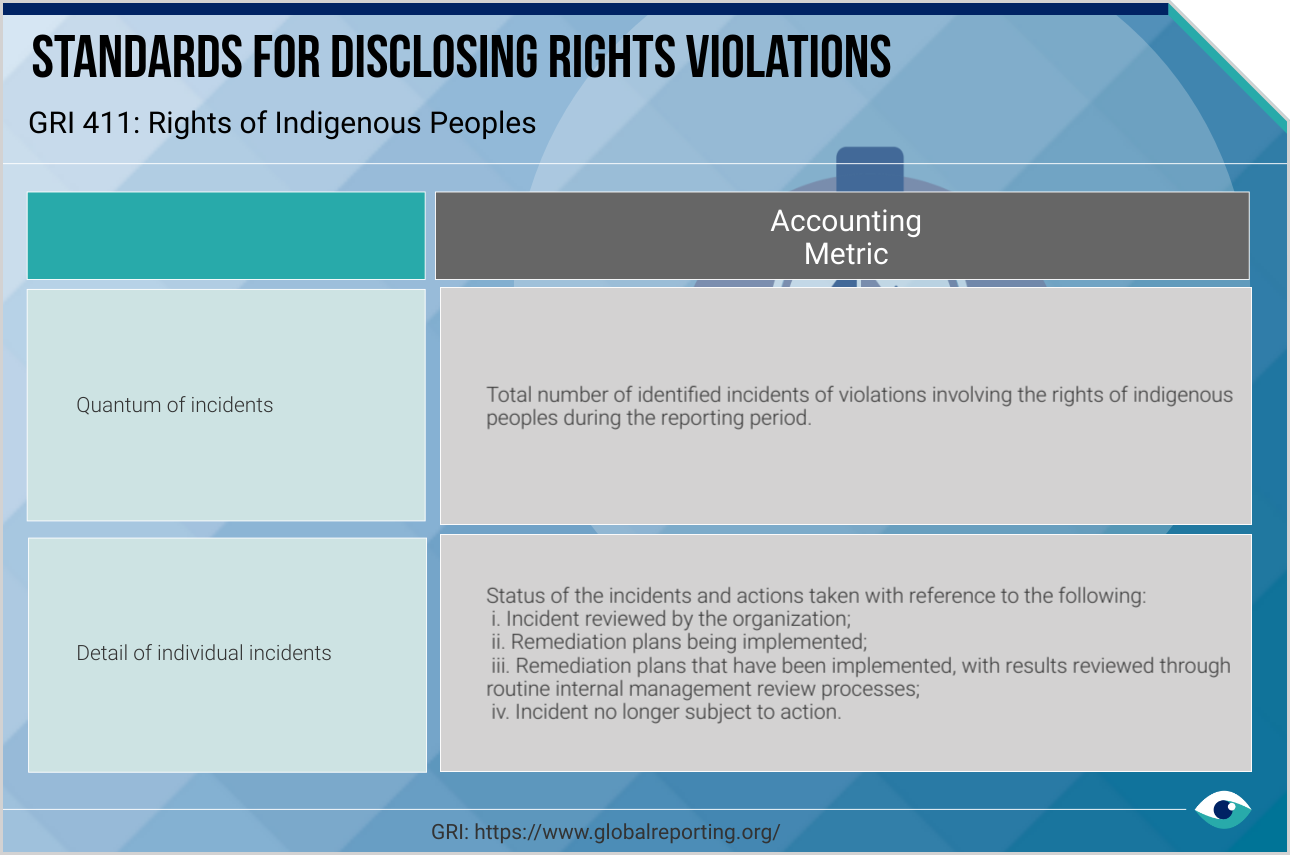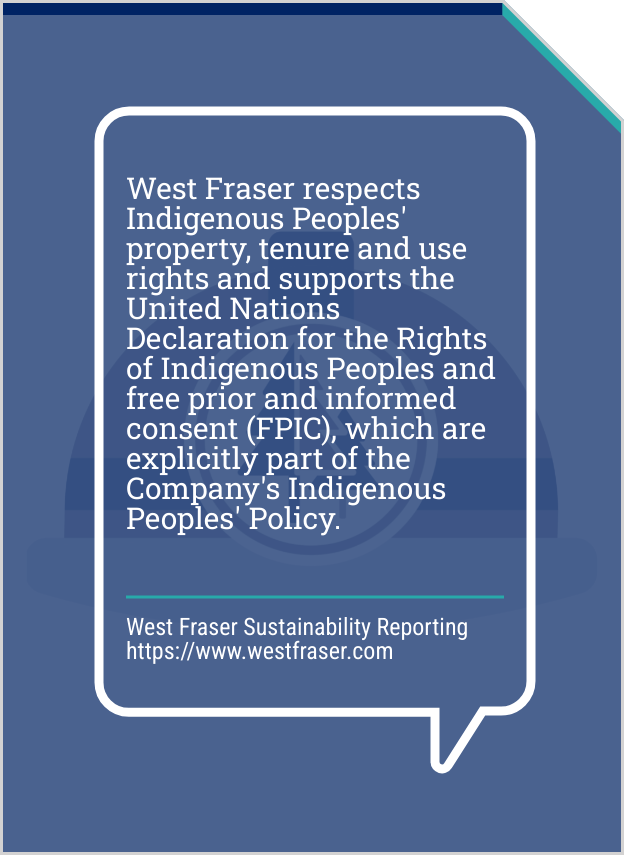Nearly 60% of Indigenous people’s lands across 64 countries are threatened by industrial development. In forestry the industry positively recognises a relationship vital to growth and sustainability for all parties. In Canada, Indigenous forest management has increased by 135% and the sector now employs 11,600 Indigenous people. Indigenous peoples are significant stakeholders for forestry companies. Failure to foster positive relations risks reputation and substantial operational and financial impacts. Leading companies commit and continue proactive and transparent community engagement, protecting and frequently returning land to Indigenous custodians.

Indigenous community engagement in action
Global forestry and paper companies today work closely with local indigenous communities to ensure mutual future prosperity
People: Social & Governance impacts
Forestry & paper
AT A GLANCE
Leading forestry companies invest in local communities to protect and sustainably manage lands.
Community engagement and the support of displaced populations are critical to forestry operations.
GRI 411 and GRI 202 are key reporting frameworks. Stakeholder toolkits are useful for managing engagement, but action and participation make real connections.
Quantitative efforts
Forestry and paper companies disclose efforts in accordance with GRI 411 and GRI 202 standards, including quantifiable actions to demonstrate progress in protecting Indigenous community rights and lands. International Paper and West Fraser, for example, proactively invest in community well-being, committing USD 19 million and USD 4.3 million, respectively, in 2022. UPM Kymmene says 18% of its land is protected, with planned increases in Uruguay and Finland.
Community involvement
Community engagement and consultation uphold rights and protect lands. West Fraser consults with 80+ Indigenous communities and has 39 mutually agreed Indigenous community engagements as part of its Indigenous Peoples’ Policy. Its investment strategy for community quality of life, wellness, education and relations boasts 500 partnerships in five countries. In Uruguay, UPM cooperates with landowners under the Fomento Programme and 99% of its mill management positions are held by local nationals.

Mapping engagement
Understanding impacts on Indigenous stakeholders is critical to effective action. Mondi uses a Socio-Economic Assessment Toolbox (SEAT) to create community engagement plans. Discussions are further facilitated by independent third parties to inform understanding. Mondi delivers against its MAP2030 framework with partnerships in South Africa that address forestry challenges and maximise local participation. UPM evaluates suppliers on social responsibility and involvement in local communities.

Ancillary actions
Climate change and an accelerated need for sustainability will evolve relationships and rights protection, leading companies to seek true partnerships for future prosperity. Stora Enso’s Veracel community liaison team works with local Pataxó and Tupinambá communities, representing almost 25,000 indigenous people. Activities promote dialogue and the preservation of traditional culture. In 2022, heavy rains and flooding devastated these communities. The Veracel team joined emergency relief efforts.
FURTHER READING
- MAP2030 framework (Mondi)
- Engaging with vulnerable groups (Stora Enso)
- New generation plantations (Mondi)
